A city is a hub where the people and the economy congregate. It consumes 60~80% of the world’s energy and produces 70% of the waste. It is also the main source of greenhouse gas emissions. With financial growth at the City’s core, to maintain long-term development of the city and to create a livable living environment, the public sector took the initiative to begin cross-departmental collaboration, and proposed a plan to realize circular economy called “Circular Taipei Implementation Plan”.
By establishing key points “disposable and melamine tableware ban” and restriction on single-use plastic products, the public are encouraged to bring their own reusable shopping bags and tableware. In turn, the promotion of self-paid plastic shopping bags and designated garbage bags is a strategy one of dual-use shopping bag, hoping to reduce the use of plastic bags. Create food bank services to realize the goal of sustainable consumption. Start an exchange platform for unused foods at public markets, where unused ingredients of the day can be freely donated. Then match the unused ingredients with disadvantaged families, where its purpose is maximized. With cross-disciplinary collaboration between the public and the private sectors, a sustainable circular city can be created.
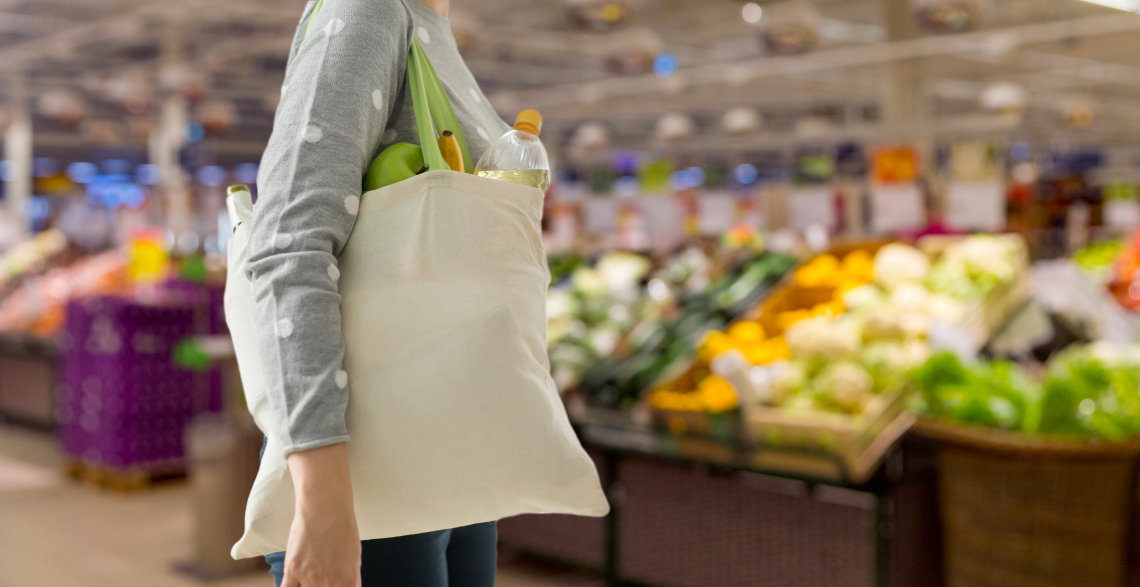
Implement the 10-year framework of programmes on sustainable consumption and production, all countries taking action, with developed countries taking the lead, taking into account the development and capabilities of developing countries.
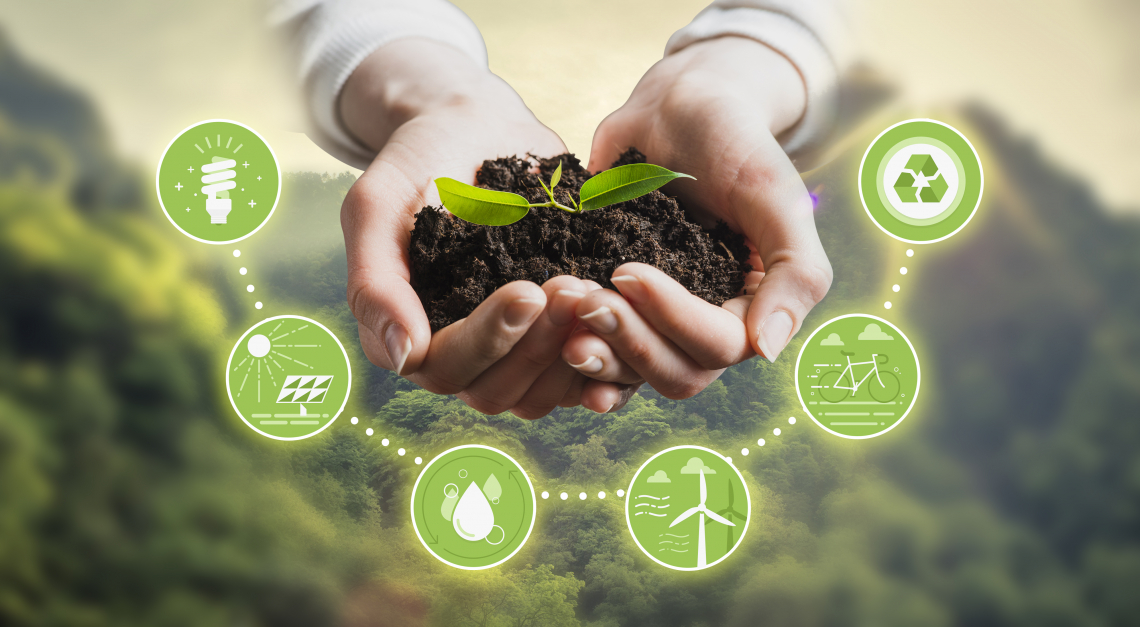
By 2030, achieve the sustainable management and efficient use of natural resources.
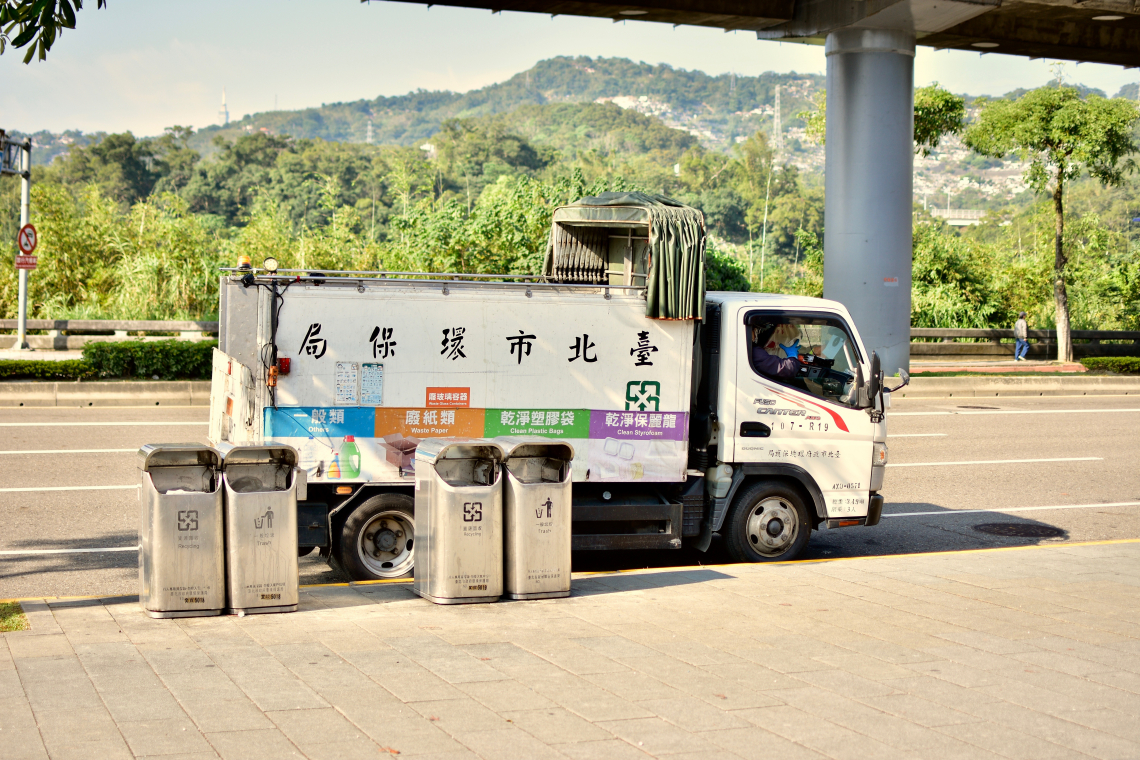
By 2030, substantially reduce waste generation through prevention, reduction,recycling and reuse.
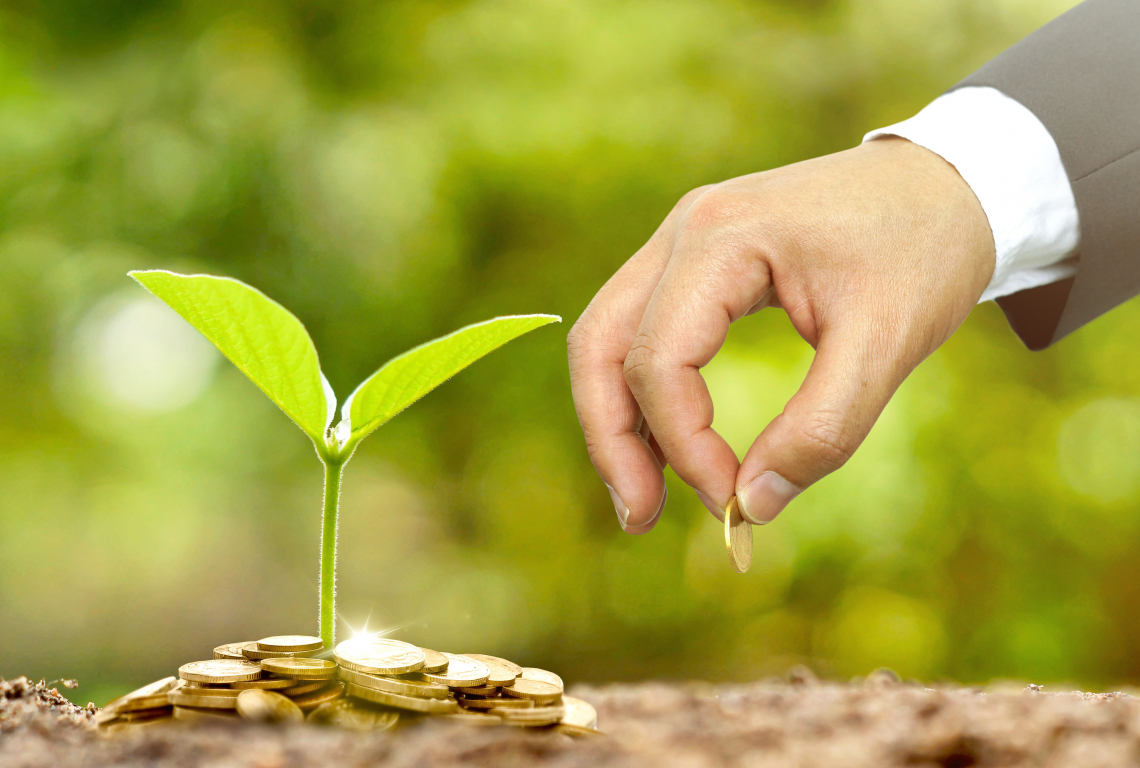
Promote public procurement practices that are sustainable, in accordance with national policies and priorities.
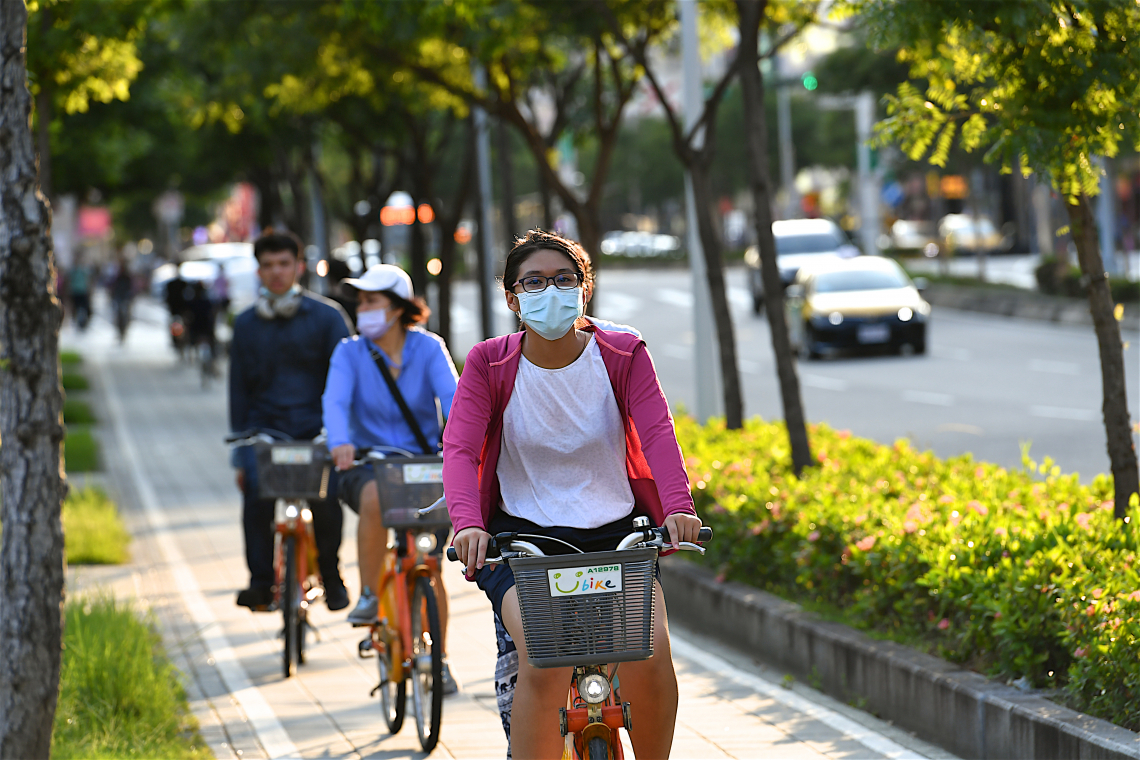
By 2030, ensure that people everywhere have the relevant information and awareness for sustainable development and lifestyles in harmony with nature.
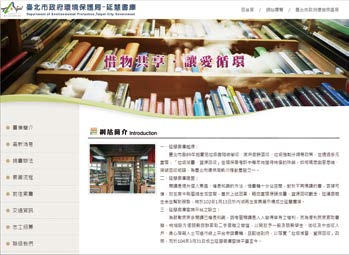
Promotion of second-hand book exchange platform
By promoting the concept of source reduction and resource recovery, the lifespan of books can be extended to help the disadvantaged. The first book sharing platform was set up in Neihu in 2013 called Yanhui Library. A website was set up in 2015, and was update in October 11, 2019, to allow the public to make applications online to reinvent the value of used books and to provide free books to help disadvantaged students to learn new things. In addition, the promotion is continued, with more enterprises, schools, public welfare organizations and citizens becoming willing to donate second-hand books, so that the collection of Yanhui Library continued to increase.
Witnessing the abuse of disposable and melamine tableware, harm has been done to the environment and health risks are affecting the public. In order to achieve waste reduction, to save energy and reduce carbon, to protect the environment, and to safeguard the health of employees, teachers and students, and visiting guests, the City government has promoted the ban of disposable and melamine tableware in the office buildings and campuses of various offices and schools. At the same time, the key points of “Disposable and Melamine Tableware Ban” are implemented by these offices and schools. In 2019, the numbers of paper containers and plastic containers reduced by 82% and 66% respectively. More than 38 markets, 13 night markets, 29 colleges and universities, 27 central authorities and 117 outsourced venues have cooperated with the implementation, and 178 enterprises have responded. In addition, in order to continue to reduce the use of various types of disposable tableware. The Environmental Protection Administration in August 8th, 2019 amended and announced “Objects, Means and Date of Restricting the Use of Disposable Tableware”, stating that department stores, shopping centers and hypermarkets (chain convenience stores and fast-food chains not included) cannot provide disposable tableware of all material for dine-in customers. The 54 department stores, shopping centers and 13 hypermarkets or megastores in the City have begun the implementation since January 1 and May 1, 2020 respectively. Violators will be fined between NT$1,200 and $6,000 in accordance with Article 51 of the Waste Disposal Act.
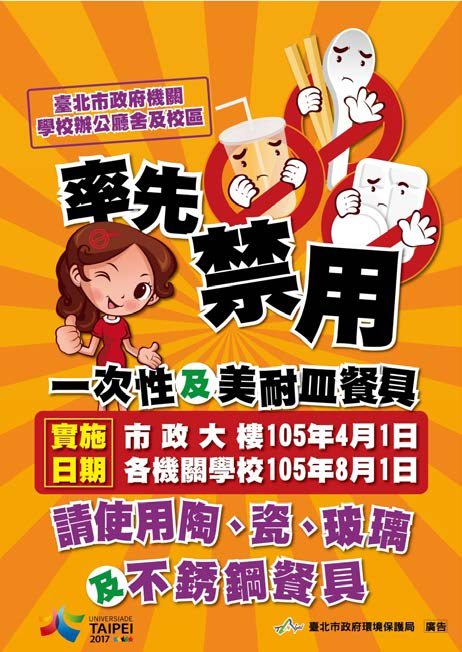
Municipal solid waste refers to waste generated from households, businesses, small businesses, office buildings and institutions (such as schools, hospitals, government buildings), but does not include business waste from municipal wastewater treatment and municipal construction waste. In order to promote the sustainable recycling of materials, relevant waste reduction and resource recycling policies are promoted to encourage the conservation of natural resources and reduce disposal load of the waste. However, in the recycling process, some energy consumption and environmental impacts cannot be avoided. As a result, waste reduction is also implemented through relevant administrative measures with continued efforts towards protecting natural resources.
In response to the economic patterns of Taipei City, to continue to attract commuting workers living outside the City and with frequent international activities and development of industries, in addition to the aforementioned promotion of plastic ban, dualuse shopping bag, disposable tableware ban, these following source reduction policies and tools are also in place, to ensure that solid waste does not increase.
Use economic incentives to encourage citizens to reduce the amount of garbage and increase the amount of resources recovered.
Recyclable furniture, bicycles that can be repaired and reused are simply repaired and sold at auction to the public for reuse.
Timely adjust the cost of entering waste into the incinerator, and at the same time establish a business entering factory control center, and establish a source management of business waste and private waste management companies to achieve the goal of business waste reduction.
The City’s implementation of Pay By The Bag Trash Collection and waste sorting have achieved remarkable results, and have been recognized internationally and has received the “Asia Waste Management Excellence Awards”.
Strengthen students' self-recycling concepts through organizing appliance recycling and inspection activities of college and university graduates. To respond to the City’s unique living patterns, counselings and seminars are arranged through community engagement to address the importance of waste sorting. Also, collaborate with enterprises on electronic recycling to guide people get started on recycling; reusable shopping bag recycling boxes have been installed in order to promote a plasticfree market, and in newly established public markets, promote the eggplant bag rental machine, all of these are to reduce the amount of waste and to achieve plastic reduction. For recycling industry, promote the digitalized management of one site one card inspection to decrease the industry’s negative perception, as well, set up green instructions for large-events, so to reduce the environmental impacts from large-scale activities. In addition to the 18 existing recycling labels in five languages, in order to strengthen resource recycling, to enhance resource recycling promotions, illustrated bilingual promotion leaflets for waste sorting by day and by type are designed, to make recycling easy for citizens.
Continue to promote various improvement measures, implement source reduction, expand sources recovery, and promote sustainable recycling of resources. Cooperating with the Environmental Protection Administration to handle the collection of recyclable resources, the Happiness Recycling Stations and the door-to-door collection of resource care and the like. The official statistics indicate that as of 2019, the resource recovery rate of Taipei City has increased year by year, say, up to 64.35% by 2019.
Combined with private donations, the love meal supply stations were established in 2009. Social welfare centers cooperated with charitable stores ( i.e. lunch box stores, noodle shops, traditional snack bars ) in the area. Meal Vouchers made by social workers are given to disadvantaged families in need, where they can go to the stores and exchange the voucher for a hot meal. Social workers will regularly retrieve the vouchers from charitable stores for write-off, and pay the stores using donations.
Given that the majority of the income of disadvantaged families is used to pay rent, utilities, childcare fees and education fees, many disadvantaged families have difficulty in paying for meals. Therefore, the City government established a Goods bank in 2011 with 22 storage locations, receiving donations of goods and money donated by private organizations, companies and enterprises and individuals. The main items are food (such as noodles, oatmeal, supplemental drinks, milk powder ) and daily necessities (such as diapers, toiletries ). Upon evaluation by social workers, the goods will be sent to disadvantaged families in need.
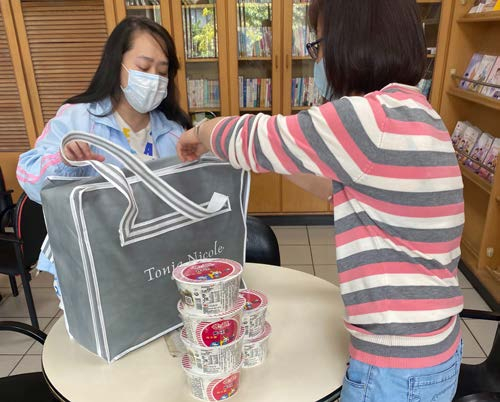
To respond to environmental protection and not waste of resources, a “food exchange platform” was established in July 2016 to encourage stall vendors to donate freely the remaining food ingredients of the day. Then match unused ingredients with social welfare units serving the elderly, the physically challenged, women and children. These ingredients are picked up from the market during certain times, and then meals for these people are prepared by the social welfare units, or are brought to families in need upon evaluation by social workers. Currently, seven public markets have joined in for the promotion. Further, in 2019, Taipei Agricultural Products Marketing Co., Ltd. also donated fruits and vegetables.
In 2018, the Environmental Protection Administration expanded the restrictions on the use of plastic bags for shopping. A total of 14 categories of businesses are not allowed to provide free plastic bags for shopping. The City simultaneously promoted the dual-use shopping bag. Hypermarkets, supermarkets and convenience chain stores can only sell “environmentally friendly dual-use bags” to reduce the use of plastic bags. At the same time, strengthen the posting of publicity announcements in the sales outlets, and advocate “Don’t Forget Plastic Bags: bring your own bags, rental deposit bags and dual-use shopping bags” so that the public will give priority to bringing their own reusable bags.
The City government agencies preferentially purchase environmentally friendly products to encourage businesses to save on resources or reduce environmental pollution in the process the procurement of raw materials, product manufacturing, sales, use, and waste disposal, to reduce the impact on the environmental. The City government also assist with environment protection work of waste reduction, resource recovery to improve environmental quality.
In order to let government colleagues better understand green product procurement and procurement operations, the “procurement and operations manual for Taipei City Government and affiliated offices and schools” is issued annually. On June 9, 2019, the “Taipei City Government promotion plan for sustainable green procurement” was published with the hope that through the manual, assistance may be provided to colleagues in the promotion and implementation of green procurement. A total of 2 green procurement workshops were held in 2019. The number of participants from various offices and schools was 142. Online learning ( i.e. Taipei e-Campus ) is encouraged, to enhance the knowledge, skills, attitudes and behavior of choosing environmentally friendly products, to improve the green implementation rate. The amount of green purchases made for designated projects in 2019 reached NT$1,003.67 million, continually showing steady growth.
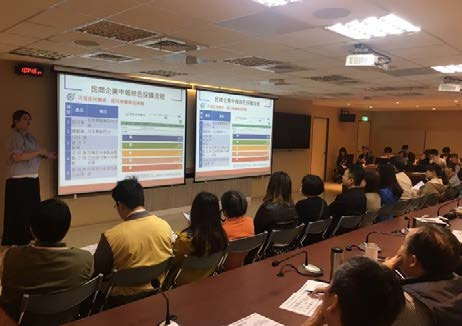
Since 2017, promotion of Environmental Protection Administration polices to promote the implementation of green procurement plans for private companies and organizations. With the incentive to create green business opportunities and enhance corporate image, private companies and organizations are assisted with the implementation, as well as the declaration of the annual green procurement budget. Counsel relevant manufacturers to apply for environmental protection labels, to increase the market share of green products, to encourage consumers to purchase green products, and through relevant activities such as promotion activities, improve public recognition of green consumption and awareness of environmental protection labels, and then give priority to procurement of green products. In 2019, a total of two green procurement declaration sessions for private enterprises and organizations were held, to provide as per needs of private enterprises and organizations with counseling, so that private enterprises or organizations can understand the declarable labels and related products, and successfully make the declaration. In order to encourage private enterprises and organizations to actively promote green procurement, a session of "Taipei City Private enterprises and organizations 2019 green procurement and Environmental Labeling Awards" was held on November 18, 2019. A total of 65 businesses have received recognition. In 2019, the green procurement declaration amount for private enterprises and organizations reached 12.6 billion; the targets for 2030 and 2050 are set at 14 billion and 18 billion respectively which virtually implements and promotes the concept of green procurement.